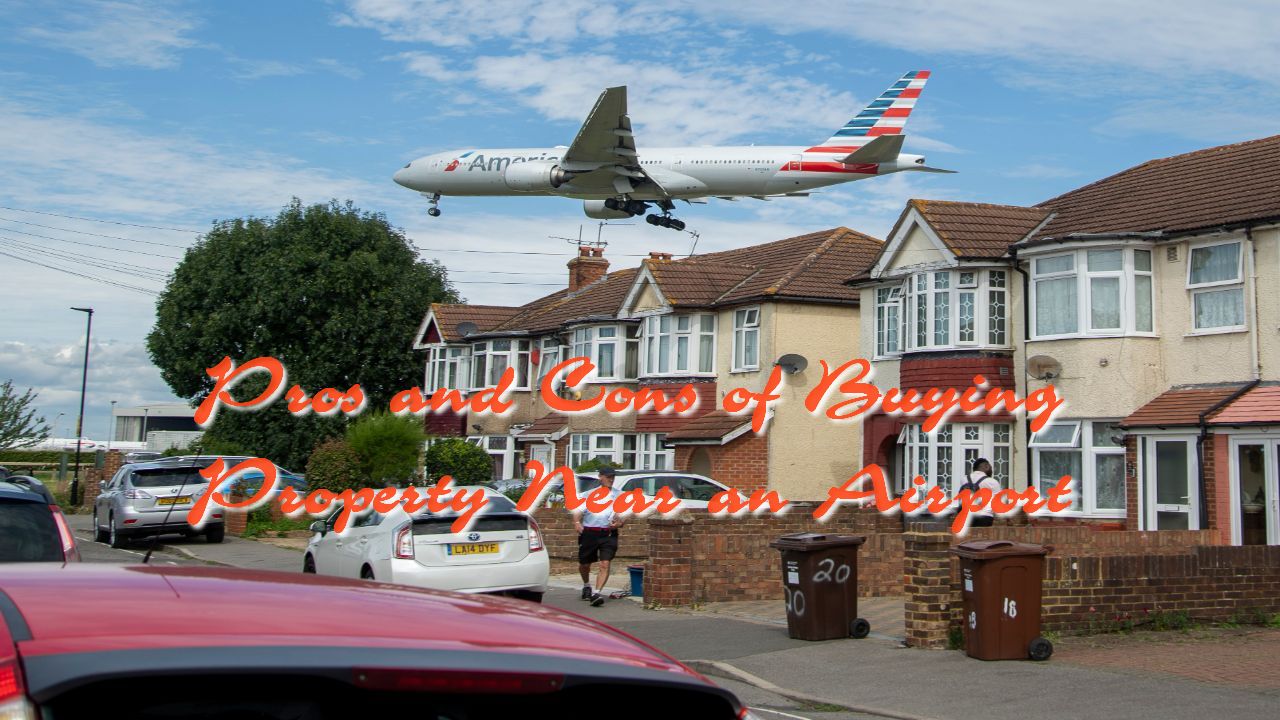Buying a property near an airport can be a decision filled with both opportunities and challenges. Proximity to amenities such as airports can significantly impact a property’s value and appeal. While the convenience of living near an airport is undeniable, there are also potential drawbacks that need to be considered. As an example of good property locations, let’s look at properties in Prairie Village. As we can see on HouseMax website, https://www.housemax.com/prairie-village, they offer a unique perspective on amenities proximity. Being in a suburban setting, Prairie Village has relatively easy access to city amenities.
But in this article, we will discuss the pros and cons of buying property near an airport, providing a balanced perspective to help you make an informed decision
Pro 1: Accessibility and Convenience

One of the biggest advantages of living near an airport is the unparalleled accessibility and convenience it offers. For frequent flyers, being just a short drive away from the airport can save a significant amount of travel time.
Moreover, airports are often surrounded by a host of amenities such as restaurants, shopping centers, and public transportation links, making daily life more convenient.
Con 1: Noise Pollution
On the flip side, noise pollution is a major concern for properties near airports. The constant roar of aircraft taking off and landing can be disruptive, particularly during peak flight times or at night.
While modern airports and airlines have made strides in reducing noise levels, it can still be a significant nuisance for those living nearby.
Pro 2: Potential for Appreciation
Properties near airports often have a high potential for appreciation. As cities grow and expand, areas around airports often become commercial and business hubs, driving up property values.
Moreover, the demand for rental properties can be high near airports, making it a potentially lucrative investment.
Con 2: Air Pollution
Airports are major sources of air pollution, including emissions from planes, vehicles, and other airport operations. Living near an airport could mean exposure to higher levels of pollutants, which could have potential health implications.
Before buying a property near an airport, it’s important to consider the air quality in the area and any potential health risks.
Pro 3: Employment Opportunities

Airports are often among a city’s largest employers, offering a wide range of job opportunities. Living near an airport can provide easy access to these jobs, making it an attractive location for those working in the aviation industry or related services.
Moreover, the presence of an airport can attract other businesses to the area, further boosting employment opportunities.
Con 3: Traffic Congestion

While living near an airport provides easy access to flights, it can also mean dealing with heavy traffic, particularly during peak travel times. Roads around airports can get congested, leading to longer travel times to other parts of the city.
Before buying a property near an airport, consider the potential impact of traffic on your daily commute and lifestyle.
Pro 4: Vibrant Community
Airports often bring together a diverse and vibrant community. A mix of locals, expats, and frequent travelers contributes to a cosmopolitan atmosphere.
Living near an airport can provide a unique cultural experience, with a variety of food, entertainment, and social opportunities at your doorstep.
Con 4: Overcrowding
Areas around airports can often become overcrowded, particularly if the airport is a major hub. Overcrowding can strain local resources and infrastructure, leading to issues such as lack of parking, crowded public transportation, and increased competition for local amenities.
Consider the potential impact of overcrowding on your quality of life before deciding to buy a property near an airport.
Buying property near an airport has its unique set of pros and cons. While the convenience, potential for appreciation, employment opportunities, and vibrant community are attractive, noise and air pollution, traffic congestion, and potential overcrowding are important factors to consider.
Ultimately, the decision depends on your personal circumstances, lifestyle preferences, and long-term goals. It’s important to weigh these factors carefully to make a decision that best suits your needs.
